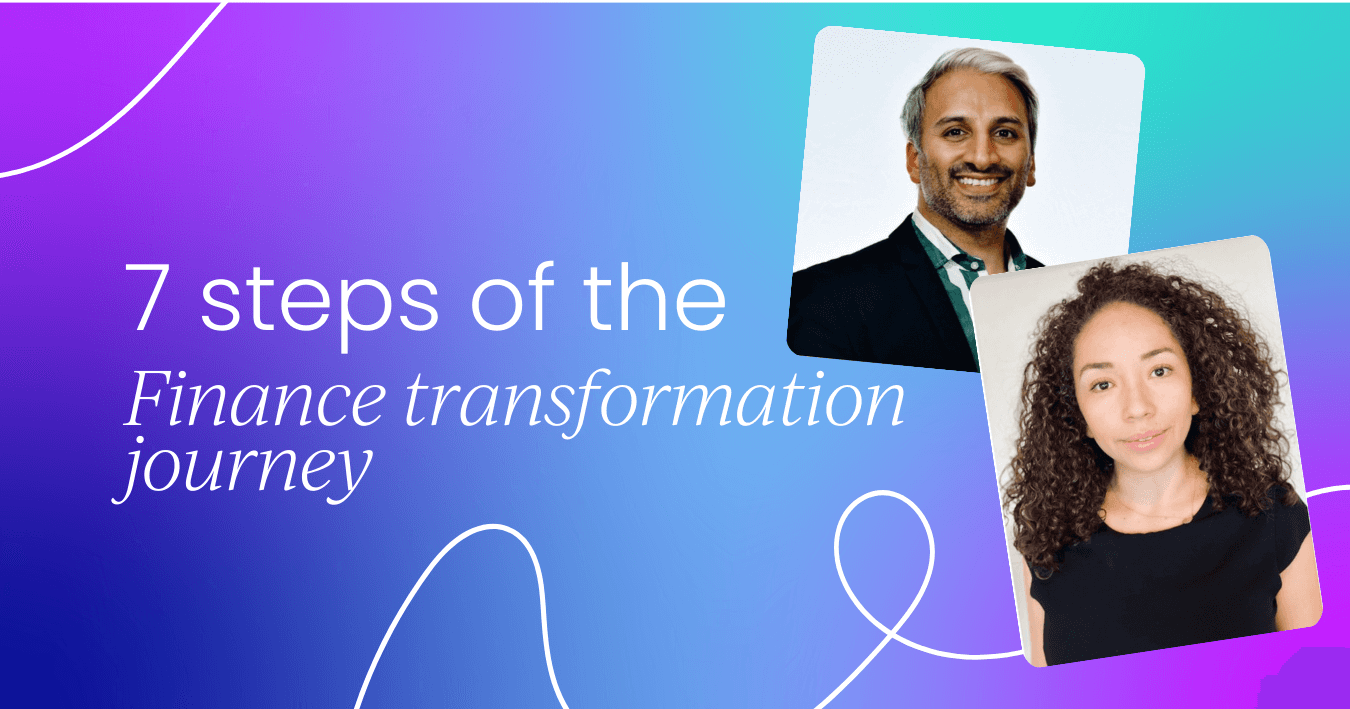Welcome to another edition of our Speaker Spotlight series, where we introduce you to the inspiring voices taking the stage at our upcoming events. This time, we’re featuring Dave Wieseneck, Ramp’s Expert-in-Residence, who'll be sharing his insights on the panel discussion, 'Deploying AI in Finance - Balancing Innovation and Compliance' at the CFO Summit in San Jose (27th February 2025).
AI implementation in the financial sector is no small task, particularly in heavily regulated environments. Dave, alongside other industry leaders, will explore the complexities, challenges, and strategies for integrating AI solutions while ensuring strict regulatory compliance. As a seasoned finance professional with a wealth of experience, Dave offers valuable perspectives on balancing technological innovation with risk management.
We recently had the chance to ask Dave about his journey in the finance industry, his advice for aspiring finance professionals, and what he believes is the future of AI in the financial world.
Read on to gain valuable insights from one of the thought leaders shaping the future of finance.👇
Can you tell us about yourself and your role at Ramp?
I’m Dave Wieseneck, Ramp’s first Expert-in-Residence. I’ve spent my career building finance teams at tech startups, focusing on creating scalable processes, optimizing workflows, and leveraging technology to drive efficiency.
At Ramp, I oversee our internal use of the product, ensuring we’re our own best customer. I also work closely with customers and product teams to align Ramp’s roadmap with the needs of modern finance teams.
Here is a blurb we use on the website:
"With 15 years of experience as a finance operator and advisor across 7+ fast-growing tech startups, David's career has rallied around one core purpose: building high-performance teams that scale operations with cutting-edge technology.
Having previously ran the finance teams at Demostack, letgo, & Ollie Pets & as an advisor for Carta, Justworks, Navan, and Ironclad, he now serves Ramp as their first-ever Expert-In-Residence.
David implemented Ramp with three past companies, making him a seasoned authority in their products and workflows. Today, he leads the team by shaping user experiences, both internally and customer-facing, with a unique curiosity and passion for building the future of financial technology."

What are some of the challenges Ramp faces in their financial planning? And how are you planning to overcome them?
As a rapidly growing company, one of our biggest challenges is maintaining accurate and agile forecasting while scaling. Growth brings frequent changes—whether it’s in headcount, objectives, or market conditions—and these shifts can quickly make traditional FP&A processes feel outdated.
For example, department ownership and reorgs occur multiple times a year as we adapt to new opportunities. This means budget and vendor ownership often changes hands, requiring us to constantly adjust how we partner with the business. Flexibility is critical, both in how we build financial models and how we report to leadership and the board.
At this stage, locking into a rigid process simply isn’t an option. We even tried implementing an FP&A platform, but ultimately found the setup too heavy and the tool, while powerful, too constraining for our needs. For now, staying nimble and leveraging adaptable solutions is how we ensure our financial planning keeps pace with our growth.
What trends do you foresee in finance over the next few years?
The biggest trend is the acceleration of automation and AI in finance. Finance teams are moving away from transactional tasks and toward strategic advisory roles. Ramp is preparing for this shift by building tools that eliminate busywork, provide real-time insights, and empower teams to focus on high-impact decisions.
Why are assemblies of the finance community, like CFO Summit San Jose, so important?
These gatherings are invaluable for exchanging ideas, building connections, and staying ahead of industry trends.

Some of my closest relationships are borne from events like these—I usually don’t realize it at the time, but there is high long-term ROI on the connections you make at in-person events & online communities.
What's your favourite finance resource that you would recommend to others?
- OnlyCFO & SecretCFO are amazing blogs & Twitter/LinkedIn follows
- Dave Kellogg & Jason Lemkin are some OGs I follow
- Excel TikTok is great to learn new formulas & tips/tricks
- ChatGPT for helping me figure out how to debug crazy long formulas

What's your favorite financial anecdote or story that you've learned over the years?
I’ll give you three:
1. Building relationships
Early in my career, I worked on a budget with a department head (CTO) who initially seemed resistant to Finance’s involvement, thinking that I wanted to just cut costs & reduce the headcount.
He came to the table with some aggressive hiring plans & a hefty expansion of the tech stack; my approach was to be more conservative & build in some gating to that growth. Instead of approaching it as a negotiation, I focused on understanding their challenges.
By the end, we not only built a more realistic budget but also found ways to reallocate resources that made more sense for the business & for his department. It taught me that finance is as much about building relationships as it is about numbers.
2. Eliminating an unnecessary expense
During a routine review, I noticed an unusual recurring expense for a software tool (let's call it "RogLocket"). When I asked the team about it, nobody could recall why we’d started using it. It took a few days of asking around, searching through emails, & even calling them up to ask them to send us emails from some team members that were no longer at our company.
It turned out the tool was part of a pilot program from years ago that no one followed up on. By questioning it, we eliminated a significant unnecessary expense and freed up both cash & tech debt in our code.
3. Cutting expenses with help from Ramp
One of my fave tweets was from a CEO who decided to terminate all his Ramp cards & just see who screamed. He ended up spinning up a bunch of new cards for his team that needed those services, but was able to cut his expense by 50%, because it turned out a bunch of SaaS was just on auto-renew & no one was paying attention enough to shut those cards off.
I feel like we should all do this at least once a year - Finance teams should be scrutinizing recurring expense at least quarterly to ensure proper ownership & continued need.
What advice would you give to young professionals starting out in the finance industry?
Focus on building relationships and understanding the big picture. Finance doesn’t exist in a vacuum—every decision you make impacts other teams and vice versa.

If you could give your younger self one piece of career-related advice, what would it be?
Don’t shy away from digging deep into an issue and understanding the “why” behind it. Question things instead of taking them at face value—you’ll often discover that a decision was made long ago, and no one actively owns it anymore.
In many cases, inertia is the only thing keeping it in place. Use that as an opportunity to step in, take ownership, and drive meaningful change. That willingness to challenge the status quo and lead will set you apart and open up new opportunities.
Join the CFO Summit San Jose!
Break free from the daily grind and join us at the CFO Summit in San Jose on February 27, 2025.
CFO Summit is an exclusive, invite-only gathering of senior finance leaders who come together to share success stories and industry insights to work through the prevailing challenges facing CFOs today.
- Pick the brains of seasoned decision-makers to hone your financial strategy.
- Revitalize and find inspiration by taking a break from the daily routine.
- Absorb knowledge from leading CFOs and understand market-shifting trends.
- Unite with your peers and establish new connections.



 Follow us on LinkedIn
Follow us on LinkedIn




